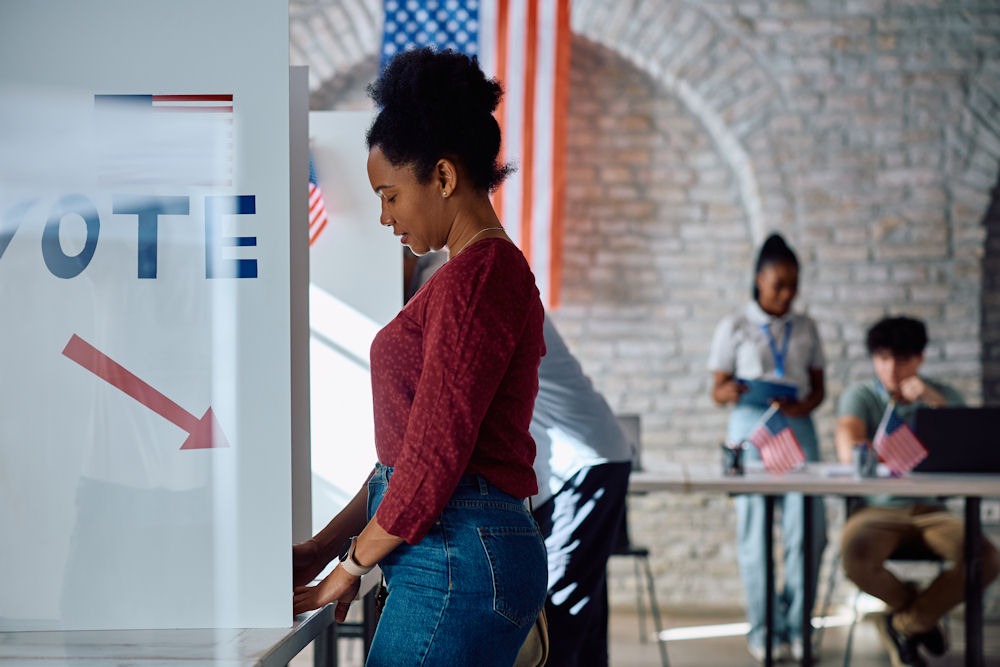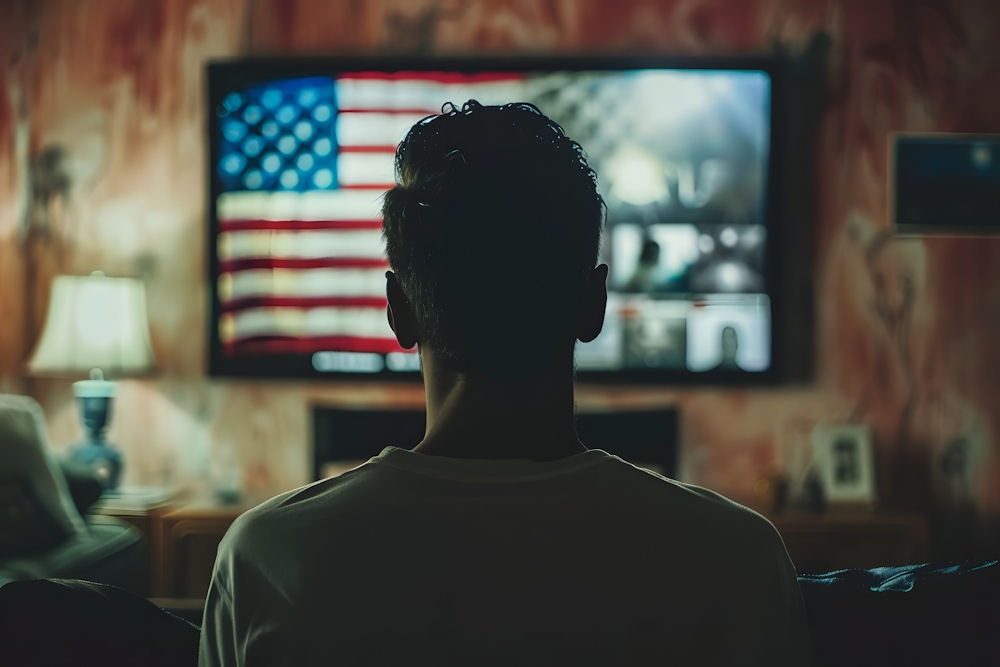The present political climate in this nation can be briefly characterized as tumultuous. This situation has given rise to a specific type of stress commonly referred to as election anxiety. For many individuals, the anxiety surrounding the 2024 elections is adversely affecting relationships, family dynamics, and overall mental health. The growing emphasis on political matters and concerns regarding the future of the United States and the outcomes of the elections are indicative of the significant polarization that our society is currently experiencing.
What steps should we take moving forward? Elections will continue, and their associated stress cannot simply be disregarded. It is essential to discover methods for managing election anxiety healthily and constructively.
At Northern Illinois Recovery Center in Crystal Lake, Illinois, we explore the factors that contribute to election-related anxiety, discuss the signs to be aware of, and provide coping strategies that can be employed or suggested to someone who may be struggling.
Election Stress and Substance Use: Understanding the Connection
The impact of elections on addiction is more significant than one might assume. While elections play a crucial role in our society, the link between electoral processes and substance abuse raises serious concerns. Political discussions have long been a source of tension, often leading to discord during family gatherings centered around presidential elections. However, the stress associated with elections extends far beyond these social settings.
Coping with election-related anxiety is challenging due to the overwhelming presence of politically charged advertisements, news coverage, social media discussions, and public discourse during election periods. Individuals who experience anxiety disorders or heightened stress levels may resort to drug abuse or alcohol abuse as a means of alleviating their symptoms.

How Elections Affect Substance Abuse
The repercussions of elections on addiction can linger, particularly for those with a history of substance abuse. Research indicates that individuals facing elevated stress or anxiety are more prone to substance use or relapse, especially if they have previously undergone detoxification. Stress remains a primary factor contributing to relapse among those in recovery.
Regardless of the duration of sobriety, stress poses a constant risk to an individual’s recovery journey. Since many individuals initially turned to drugs or alcohol for self-medication, they may find comfort in their addiction during times of emotional turmoil.
In periods of significant stress and discomfort, the desire for their substance of choice may resurface. The influence of elections on addiction is indeed more pronounced than one might realize, highlighting a troubling connection between the electoral process and substance abuse.
What is Election Anxiety?
Experiencing anxiety and unease regarding the forthcoming election? If you resemble the 69% of American adults who identified the presidential election as a significant source of stress in their lives, you’re not alone.
Research conducted by the American Psychological Association (APA)’s Stress in America 2024 survey, indicated that the presidential election has emerged as a major source of stress for individuals, ranking alongside more traditional concerns such as financial stability and employment.
Elections often serve as significant sources of anxiety due to the inherent uncertainty they bring. Individuals may find themselves uncertain about the election results and the potential implications of a new administration. Also, certain proposed policies may pose threats to personal safety and freedoms, further exacerbating feelings of anxiety. Research indicates that political anxiety can affect individuals who typically do not experience anxiety.
It’s important to distinguish between general anxiety and anxiety specifically related to elections. Generalized anxiety may stem from cognitive distortions or misguided beliefs and fears about the world. In contrast, distress associated with elections is often grounded in tangible and legitimate concerns that reflect individuals’ real-life experiences.
Causes of Election Anxiety

Anxiety in all its forms can adversely affect both physical and mental health, and the stress associated with elections is no exception. Research conducted by the American Heart Association has established a connection between anxiety, depression, and detrimental effects on heart health, as well as an increased risk of stroke.
It can lead to feelings of withdrawal, heightened tension, or excessive reactivity, with triggers appearing to be omnipresent. We exist in a continuous news cycle, where accessing the latest headlines requires minimal effort. Even if one does not actively seek out news, the desire to stay informed can be quickly satisfied through a brief session of scrolling through alarming updates.
There are numerous factors contributing to election-related anxiety. Recognizing the specific triggers of your political anxiety is the initial step toward managing and alleviating it. Common causes of political anxiety include:
A prevalent source of political anxiety often arises from the continuous barrage of information we face daily. The pervasive influence of social media, 24-hour news cycles, and incessant updates can easily lead to feelings of being overwhelmed, exacerbating already strained emotions. The situation becomes even more intense during election seasons, heightening stress levels. This saturation of media can result in fatigue, a feeling of powerlessness or despair, frustration, and disorientation. For some individuals, it may even provoke feelings of anger.
Contemporary society is marked by a significant degree of polarization. In the past, it was relatively straightforward to identify a shared middle ground, where individuals were content to acknowledge differing viewpoints with mutual respect. However, the current state of political discourse has become increasingly divisive, overshadowing constructive dialogue. This prevailing “us versus them” mindset can foster fear and heighten anxiety regarding impending electoral outcomes.
Elections may be inducing greater anxiety today compared to previous years due to the perception of heightened stakes involved.
No matter one’s political affiliation, each election appears to represent a crucial turning point. It often seems as though the future of the nation is at stake, leaving individuals with a sense of diminished control over what lies ahead. This uncertainty can be both unsettling and stressful; when confronted with the fear of the unknown, individuals may be compelled to reflect on the implications of an election, which can lead to significant anxiety.
Signs of Election Anxiety
Acknowledging the indicators of election-related anxiety is essential for comprehending and effectively managing it. By pinpointing the sources of your stress, you can take steps to address these issues and enhance your emotional well-being during periods of political activity. Common indicators of election-related anxiety may encompass:
- Intense worry
- Challenges with sleep
- A sense of agitation or restlessness
- Engaging in prolonged negative online browsing
- A pervasive sense of hopelessness regarding the future
- Physical manifestations such as gastrointestinal problems, headaches, and muscle tightness
- Alterations in appetite, including overeating or loss of appetite
- Fluctuations in mood
- Unexplained or misplaced anger
Election anxiety, although it may seem overwhelming and significant, can be effectively managed according to mental health professionals. As we approach November 5 and navigate the uncertain days that follow and beyond, several strategies can assist in calming your thoughts.
Coping Strategies for Election Anxiety
Concerns regarding political matters can profoundly affect your overall well-being, and it may prove challenging to distance yourself from the sources of your anxiety. The occurrence of elections is inevitable, and your options are largely limited to voting, raising awareness, or volunteering—activities that require considerable time, energy, and effort. It is common to feel a sense of helplessness regarding the outcomes of elections.
However, if you can identify the specific factors contributing to your election-related anxiety, there are constructive measures you can implement to mitigate its effects healthily.

To effectively confront your anxieties, it is essential to identify the factors that provoke these feelings. Consider which particular policies or issues have the greatest effect on you. Determine your three primary concerns and make an effort to discuss these apprehensions with family members, friends, a supportive online community, or a mental health professional.
It is remarkably simple to pick up your phone and begin scrolling through news or social media; however, restricting your active engagement in media consumption can significantly alleviate election-related anxiety. There are several effective strategies to remain informed about issues of interest without becoming overwhelmed.
- Set daily time limits for your information searches.
- Broaden your range of news sources.
- Incorporate breaks during which you refrain from engagement or responses.
- Enhance your critical thinking skills by verifying information to prevent the spread of misinformation.
- Engage only in constructive, respectful discussions.
- Cultivate the ability to disengage calmly when necessary.
- Balance your information consumption with proactive measures that contribute positively, such as volunteering, advocacy, or civic participation.
- Prioritize self-care.
- Seek professional support.
Staying informed about significant political and global matters is crucial, particularly as the election season approaches. However, for those who tend to delve deeply into topics, it is important to establish boundaries regarding the extent of engagement.
Research indicates that the efficacy of positive thinking can significantly diminish distressing thought patterns, even among individuals diagnosed with generalized anxiety disorder (GAD). However, simply advising individuals to “think positive” is often more challenging than it appears. A more feasible approach is to engage in activities, hobbies, and social environments that bring joy. The brain exhibits favorable responses when we participate in rewarding and fulfilling endeavors.
Evidence suggests that individuals who regularly engage in volunteer work experience numerous benefits, physically, mentally, and socially, and have higher levels of satisfaction, empowerment, and reduced stress and anxiety.
Having the support of friends and family is essential in alleviating anxiety; therefore, it is advisable to refrain from isolating oneself in the coming weeks. Instead, consider connecting with friends and family who steer clear of political topics or participating in a safe and welcoming community event.
Seek out individuals who instill a sense of tranquility rather than apprehension, and with whom you can discuss your feelings and collaboratively address challenges. It may also be beneficial to identify groups or activities that allow for the expression of intense emotions, such as a dance class or a volunteer organization. These supportive communities will be particularly important in the aftermath of the election.
Engaging in mindfulness, which involves focusing on the present moment, serves as an effective method for conditioning the mind to remain in the now rather than being preoccupied with future concerns.
Although mastering mindfulness may require time and practice, it is beneficial in addressing anxiety and depression. Constructive approaches to enhance mindfulness through relaxation coping strategies include:
- Meditation
- Yoga
- Journaling to manage anxiety
- Deep breathing exercises for anxiety relief
- Walking
Additionally, relaxation techniques play a significant role in alleviating anxiety and fostering a sense of tranquility and serenity in one’s life.
There are numerous strategies available for individuals to address election-related anxiety independently; however, there are instances when seeking professional assistance through therapy may be beneficial. They can also equip you with effective coping mechanisms to implement beyond the therapy sessions. Professional support may encompass:
- Cognitive-behavioral therapy (CBT)
- Acquisition of self-help techniques
- Encouragement of self-care practices
- Prescription of anxiety medication
Mental health experts can assist in pinpointing the underlying causes of your anxiety and guide managing the stress associated with elections.
NIRC Treats Anxiety and Substance Abuse Effectively

Experiencing election anxiety can be overwhelming and draining. It may take a toll on both your mental and physical well-being, affecting your interactions with friends, family, partners, and colleagues. Fortunately, no one needs to face these challenges alone. Concentrating on aspects within one’s control serves as an effective means to provide an outlet and alleviate the cycle of anxiety.
Northern Illinois Recovery Center in Crystal Lake, Illinois is a safe and positive place to heal and cope with the challenges of substance abuse, mental illness, or both. We provide resources and support for struggling individuals including dual diagnosis treatment. Want to have a more healthy and fulfilled life? Contact us today.




